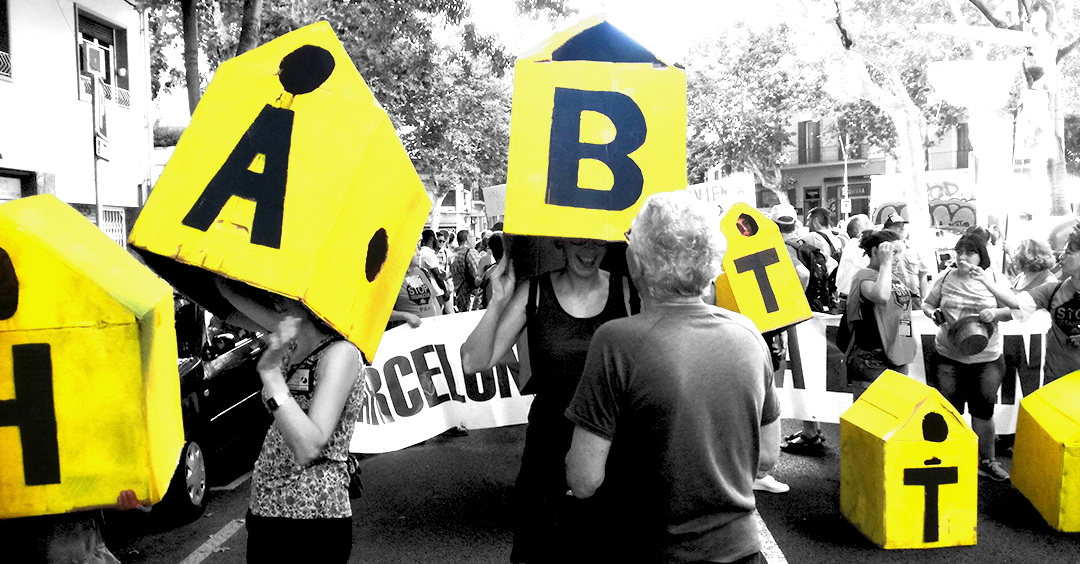Uppsala (Sweden), 11-13 September, 2024
How is the common city of the future to be produced, created, built and imagined? How are different forms of urban commoning experienced worldwide? What obstacles and struggles should we expect in creating and fostering the urban commons? What are the key facilitating conditions, forms of organising and possible institutions for maintaining the urban commons? How can we define the common city in ways that help overcome capitalist urban and social relations? To what extent are the struggles for the right to the city, and for housing and urban justice at the core of urban commoning?
This conference intends to gather scholars and activists who are concerned about the above questions. It is promoted by the cooperation project between Uppsala University (Sweden) and the UFMG (Universidade Federal de Minas Gerais, Brazil) that has been developed since 2019, on the one hand, and The Housing & Urban Justice Projectbased at IBF, on the other.
We invite individual scholars/activists and collectives engaged in critical urban studies to join these networks, share their insights during the conference and initiate joint collaborations (publications, research projects, etc.).
Keynote speakers: Don Mitchell, Rita Velloso, Irene Molina, Dominika Polanska and Miguel A. Martínez.
The conference will be focused on three strands.
1) Urban struggles for the right to the city and urban commons
We are interested in the analysis of grassroots struggles and social
movements challenging the increasing commodification and authoritarian
governance of urban spaces. The proliferation of neoliberal policies,
the increasing gentrification of neighbourhoods, the commercialisation
and privatization of housing stocks and public space, the displacement,
home evictions, criminalisation and marginalisation faced by urban
communities, are some of the targets of movements who, at the same time,
claim the right to the city for the oppressed and help construct urban
commons. We welcome international comparisons of such and other urban
contestations. Submitted papers and presentations are expected to
provide critical assessments and thick accounts of the movements’
features, structures, praxis and outcomes. A special focus on the
theoretical frameworks, the specific contexts related to the
case-studies, and the research findings is equally encouraged. In
particular, we aim at advancing our understanding of the relationship
between contentious politics (the conflicts between movements and their
opponents) and the structural conditions (capitalist dynamics,
intersectional/ reproductive structures, urban development, political
opportunities, discursive/cultural struggles about hegemony, etc.) that
constrain these conflicts.
2) Activist research: methodological reflexivity and practical experiences
Participatory, activist and militant approaches to develop socially
engaged and critical scholarship in urban studies are currently more
thriving and legitimised than ever. At the same time, they face
cancellation from conventional and mainstream approaches (and political
pundits alike). On the other hand, less radical and critically engaged
approaches such as citizen and co-produced science do not necessarily
lead to question the underlying hierarchies and inequalities that
academic work can reproduce. Finally, residents, inhabitants, community
organisers and activists may prefer more conventional and external forms
of scientific knowledge than the promised ones by participatory-action
research. In these sessions we expect to discuss new insights and
experiences related to the relationship between grassroots activism and
urban scholarship. Both reflective papers on methodological issues and
critical appraisals of previous experiences are welcome. A specific
focus on the labour and finances involved in such processes, time-space
dimensions, risks of epistemic extractivism, achieved outcomes,
collaborative methods, popular scientific education, and
artivism/socially-engaged art, to name a few, can inspire the expected
submissions.
3) Housing and Urban (In)Justice in Global North & South contexts
In this block, we are welcoming papers on social inequalities,
marginalisation and oppressions that are especially manifested across
urban settings, although not limited to them. In particular, we welcome
papers addressing class, gender, ethnic/race, citizenship, ability and
other dimensions of social cleavages that are expressed in residential
conditions, housing inequalities, urban planning and the appropriation
of spaces in towns, cities and large metropolitan areas. The scope and
scale of land dispossession, displacement and exclusion from adequate
housing and essential urban goods and services are multifarious
nowadays. The roots of these phenomena are mostly located in power
relations which, in turn, shape specific policies, political camps and
grassroots social movements. They affect very different territories in
the Global North and South, although there are also flows of people,
commodities, information and capital that cross national boundaries
under very unequal conditions framed by local, regional and global
processes of accumulation by dispossession. The financialisation of
capitalism adds gendered and racialised dimensions to an acute
affordability housing crisis signed by privatisations, state
disinvestment, skyrocketing energy costs, home evictions, homelessness,
the loss of the commons and the formation of a new housing precariat.
The exploitation of a racialized surplus work force, especially in, but
not only the housing construction sector, is embedded in structural
economic injustice. The current and accelerated environmental
catastrophes, pandemics such as the Covid-19 and others, the rise of
far-right political parties and governments, and ongoing devastating
wars are important issues to address in the field of housing and urban
inequalities.
Call for abstracts
Deadline to submit an abstract (up to 300 words): 1 April, 2024
Acceptance of proposals: 15 April, 2024. Registration will be open up to 30 April, 2024.
Registration
The registration will open 15 February.
Registration fee: €100 regular; €50 for students, unemployed and precarious scholars/activists. Fees can be waived in justified cases. Three lunches and snacks are included in the registration.
Contact
For any inquiries, please contact Ilhan Kellecioglu ilhan.kellecioglu@ibf.uu.se or Mika Hyötyläinen mika.hyotylainen@ibf.uu.se




